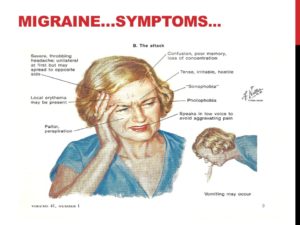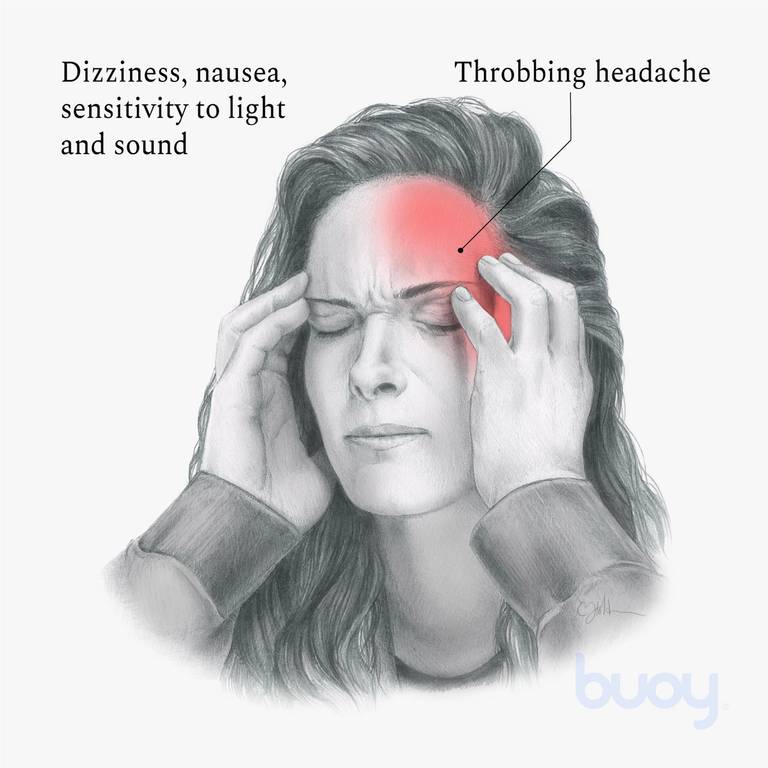
If you’ve ever had a migraine, you know it’s not your run-of-the-mill headache. Instead, your head throbs, you feel light-headed and nauseated, and you want to hide in a dark room. Women are more likely to experience migraines than men. Although the exact cause of these headaches is not entirely known, factors such as changes in hormones, stress, or certain foods have been linked to them.
Before your migraine, you must know what to expect from it. During the prodrome phase, you will have difficulty sleeping and eating, and you may experience a mild, throbbing headache. A few people may feel dizziness and be apathetic, while others may feel no pain at all. You should also write down the type of pain you experience, and where it occurs. You should also list any medications you take, including pain medications, daily prescriptions, and supplements.
If you have been diagnosed with migraine, you will need to document your daily intake of water and food. Describe the type of pain you experience, rate it on a scale of one to 10, and indicate where it is located. You should also list any medications you take for migraine. You can include supplements, daily prescriptions, and pain medication. In addition, a list of foods and beverages you avoid will help your doctor understand what your body reacts to.
Symptoms of migraine vary, and it’s important to note what triggers your migraines. You should also log your water and food intake to help your physician determine what’s causing the pain. Besides the headache, you should also note whether you’re suffering from any other physical symptoms, such as nausea or abdominal pain. A therapist can also offer tips for reducing your stress level, as stress can make the headache worse.
Taking medication to treat migraines can be helpful for those suffering from migraine. It can be a good idea to avoid certain things that trigger migraines, such as bright lights, smoke, or bright colors. Many sufferers also find that reducing stress can help their condition. Moreover, taking prescription medications can help prevent migraines, as they contain a variety of benefits. During a migraine, it is important to learn how to control your stress levels.

If you have a migraine, it is important to keep a diary of your daily activities. You should write down the food and water you eat, as well as the time of day you experience a migraine. You should also write down the type of pain you are experiencing and rate it on a scale of one to 10. You should also write down the level of stress you experience during a migraine. If your symptoms last more than four hours, it could be a brain tumor.
Postdrome: This is a common stage for migraine sufferers. This phase is characterized by changes in mood and feelings. A person suffering from a migraine may be lethargic or tired, or even suffer from frequent pain. Some patients may even have a migraine without a headache. It is very important to write down your symptoms and pay attention to whatever is causing them. The Health website https://www.saludremediosar.com/ will help you learn what causes migraines and how to treat them.
Migraine symptoms include an intense, throbbing headache. The person may experience tingling, stiff neck, or even loss of consciousness. A migraine is usually accompanied by an aura, which can be a warning sign that a migraine is on the way. In addition, the person may feel nauseous or dizzy. Sometimes they cannot even speak or recognize the person who is in pain.
After the migraine aura has ended, a person may experience a postdrome. This postdromic period is often characterized by a tingling sensation, speech problems, or neck stiffness. The patient may experience a dull headache that may persist for several hours after the migraine has ended. If there is no pain, this may mean that the migraine is not over yet. However, a person may still experience a migraine without a headache.